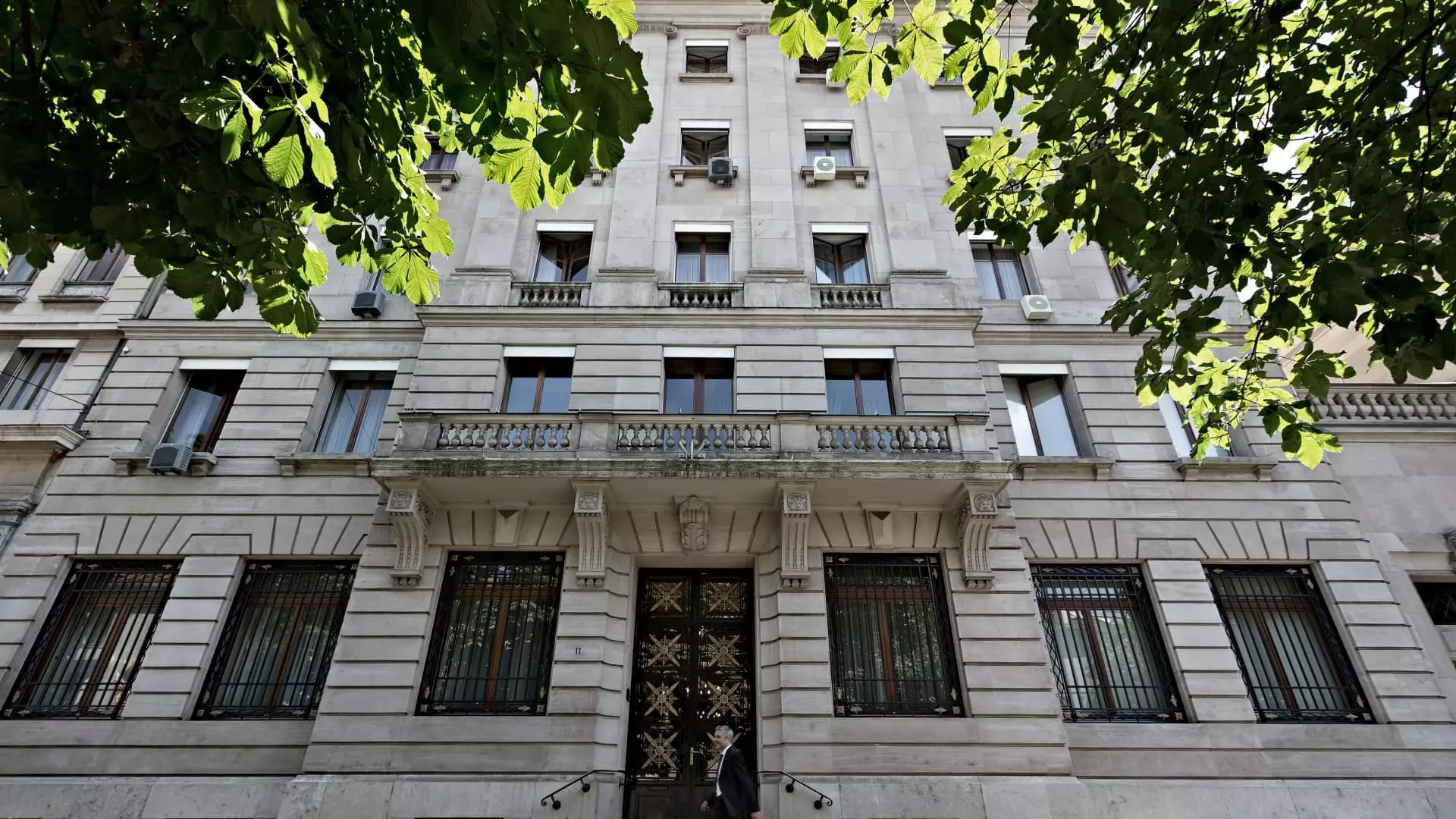Lombard Odier, one of Switzerland’s most venerable private banking institutions, has recently found itself embroiled in a significant legal challenge following an indictment by the Swiss Office of the Attorney General (OAG). This indictment revolves around accusations of “aggravated money laundering.” At the core of the allegations is a former employee of the bank, who supposedly aided in obscuring the financial operations linked to a criminal organization led by Gulnara Karimova. As the daughter of former Uzbek president Islam Karimov, Karimova has drawn attention not just for her familial ties, but also for her controversial legal entanglements.
Karimova was indicted by the OAG earlier this year, accused of laundering substantial illicit proceeds generated between 2005 and 2012. Reports suggest that a portion of this suspect capital managed to filter into Lombard Odier’s accounts in Geneva. For an institution with roots tracing back to 1796, this scandal creates a stark contrast between its esteemed history and the gravity of the allegations it now faces.
The timeline of this investigation extends back to 2016, a period in which the bank itself reportedly initiated a proactive disclosure of suspicious activities to the authorities. This move, while demonstrating a level of corporate responsibility, now casts a shadow over its reputational integrity. The OAG indicated that Lombard Odier and its former relationship manager’s actions were pivotal in the alleged concealment of money sourced from organized crime.
Despite the seriousness of the allegations, Lombard Odier staunchly maintains its innocence. In an official statement, the bank characterized the OAG’s claims as “unfounded and without merit.” This firm denial underscores a paradox in the financial sector, where institutions grapple with the balance of regulatory compliance and operational autonomy, often leading to complex legal situations that can tarnish even the most reputable names.
The Implications for the Banking Sector
This legal predicament reflects broader implications for the banking sector, especially regarding the enforcement of anti-money laundering (AML) regulations. The scrutiny faced by Lombard Odier illustrates the heightened vigilance of Swiss authorities in their bid to combat financial crime. As one of the leading financial hubs globally, Switzerland’s reputation is intricately tied to its banking integrity, and complacency may be an invitation for regulatory backlash.
Lombard Odier’s case acts as a cautionary tale, highlighting the intricate web of responsibility that banks have in overseeing their transactions and client relations, especially in jurisdictions with a history of authoritarian regimes. The fallout from this case could potentially lead to stricter oversight and reform across the financial industry.
As Lombard Odier prepares to defend itself vigorously against these allegations, the unfolding scenario will be closely monitored by legal experts, industry insiders, and regulators alike. The outcome of this case could shape future compliance standards within the banking sector. It serves as a poignant reminder of the persistent challenge institutions face in maintaining regulatory compliance and preempting associations with illicit activities.
In summation, while Lombard Odier’s heritage remains unblemished, the present challenges deny easy resolutions. The road ahead will not only determine the fate of the bank but may also set precedents that resonate throughout the banking community, compelling a reevaluation of practices and policies in an ever-evolving regulatory landscape.

